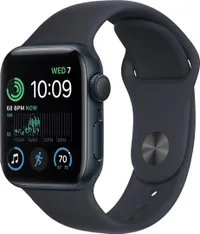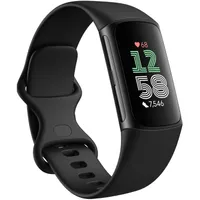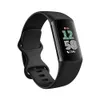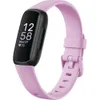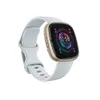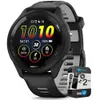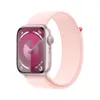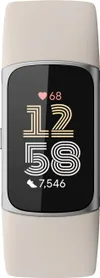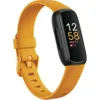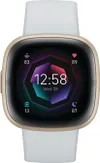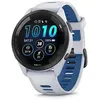I walked 5,000 steps with Apple Watch SE vs Fitbit Charge 6 — here's the winner
We pitted two of 2024's most popular wearables against each other
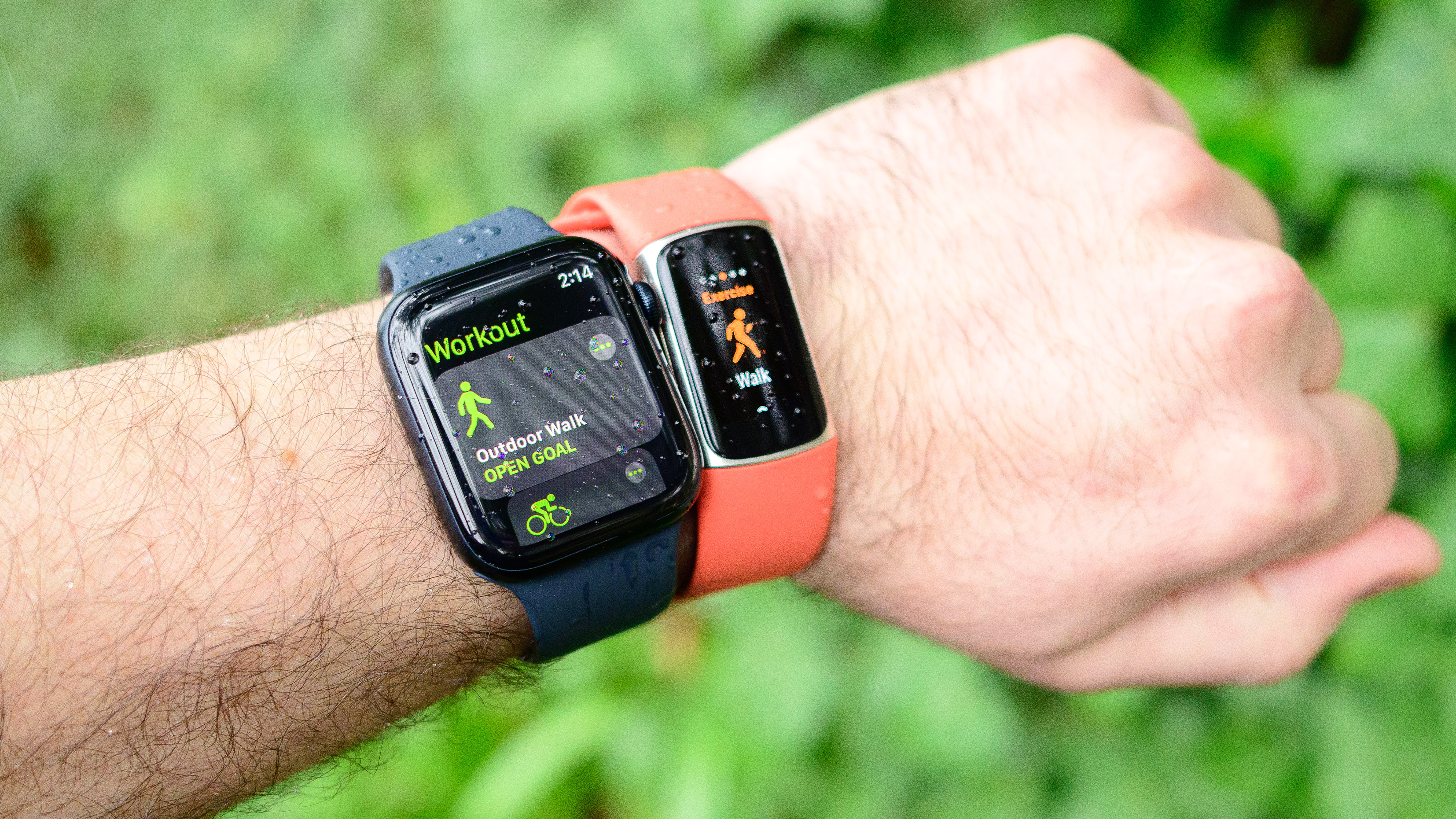
Ever eager to compare the accuracy of our favorite fitness tech, I pitted two of the most popular smartwatches against one another in a test of step count precision.
The Fitbit Charge 6 is the best overall fitness tracker in 2024 and the Apple Watch SE (2022) is the best smartwatch for the money. But, which is better for tracking walks, hikes, runs and other common outdoor cardio workouts?
Both devices sport onboard GPS but only the Apple Watch has a barometric altimeter to measure elevation. On the other hand, the Charge 6 sports an onboard SpO2 sensor for blood oxygen monitoring. The SE doesn't.
These differences aside, both provide useful post-exercise metrics including distance traveled, total step count, calories burned, average pace, average and maximum heart rate and more.
Apple Watch SE (2022): was $249 now $199 @ Best Buy
The entry-level Apple Watch SE is more than a fitness tracker, it's complements your iPhone by providing nearly the same features — and apps — as its bulkier cousin. Plus, you get heart rate monitoring and activity tracking for popular workouts like yoga, strength training, outdoor cycling, and dancing.
Fitbit Charge 6: was $159 now $139 @ Walmart
We tested the Charge 6 and found that it was easily the best fitness tracker for most people. The on-device menus are easy to use, the screen is bright even in direct sunlight, and the tracker lasts six days between charges. It's an ideal option for keeping tabs on your daily activities and light exercise, with all the data accessible in the Fitbit app. Plus, the Charge 6 has Google Maps and Google Wallet (for contactless payments) and an ECG for keeping tabs on your heart health.
Price check: $152 @ Amazon
Apple Watch SE vs. Fitbit Charge 6 — step accuracy test
Fully caffeinated and ready to take on a cold, rainy afternoon, I strapped the Fitbit Charge 6 to my right wrist and the Apple Watch SE to my left, before firing up Strava on my phone for an additional set of data.
With my old-school tally counter set back to zero, I split for Seattle's luscious Volunteer Park somewhat underdressed for the on-and-off downpours I would encounter.
While Strava has proven accurate at tracking my walks in the past, manually counting every step is the only fair way to ensure that exactly 5,000 are taken. To keep track I click the tally counter once every hundred steps.
Get instant access to breaking news, the hottest reviews, great deals and helpful tips.
So, which device came closest to nailing the 5,000-step mark? Read on.
Apple Watch SE vs. Fitbit Charge 6 – the results
| Header Cell - Column 0 | Apple Watch SE | Fitbit Charge 6 | Control |
|---|---|---|---|
| Steps | 5,032 steps | 5,040 steps | 5,000 steps (manual count) |
| Distance | 2.52 miles | 2.32 miles | 2.62 miles (Strava) |
| Elevation gain | 243 feet | n/a | 233 feet (Strava) |
| Pace | 20 minutes, 46 seconds per mile | 22 minutes, 17 seconds per mile | 19 minutes, 2 seonds per mile (Strava) |
| Calories burned | 362 calories | 389 calories | n/a |
| Average heart rate | 121 bpm | 121 bpm | n/a |
| Maximum heart rate | 147 bpm | 142 bpm | n/a |
Both devices were within fifty steps of the total actual count, which is really quite commendable. However, while Fitbit conveniently provides step counts for individual exercises tracked, the Apple Watch does not; you only get a total step count for the day.
Fortunately, I only walked an additional ~half a mile home post-test and was able to calculate my step count for just the head-to-head by dividing my total steps for the day, 5,990, by the total distance I walked: 3 miles. This gave me my average number of steps per mile, 1,997, which I simply multiplied by 2.52 miles to get 5,032 steps.
There are other small discrepancies, but by and large, both devices seemed to agree with one another's metrics and the data pulled from Strava. Is this surprising? Not really. After all, we're talking about two widely popular Apple and Google products.
The absence of an elevation gain figure from the Fitbit Charge 6 is notable, though. A 2.5-mile walk with no ascent is quite a different workout than that same distance with ~250 feet of elevation gain.
Conclusion — Apple Watch SE wins
Ultimately, the Apple Watch SE wins our step count challenge against the Fitbit Charge 6 by the skin of its teeth or a mere eight steps. And, while we could call this one a tie, given how close it is, Apple gets the nod for also providing more data than Fitbit, specifically, an ascent measurement.
This means that as an avid hiker and enjoyer of the mountains, I'll definitely be reaching for the Apple Watch SE over the Fitbit Charge 6 before my next adventure. Not only will I get more valuable data, but more useful hiking and safety tools too.
What fitness trackers should we test against one another next? Let us know in the comments below.
More from Tom's Guide
- I walked 3,300 steps with the Fitbit Charge 6 and Garmin Forerunner 165 – this one was more accurate
- Samsung Galaxy Ring: Everything we know so far, including potential launch date and features
- Smartwatch water resistance ratings explained

Dan Bracaglia is the Tom’s Guide editorial lead for all things smartwatches, fitness trackers and outdoor gear. With 15 years of experience as a consumer technology journalist testing everything from Oura Rings to instant cameras, Dan is deeply passionate about helping readers save money and make informed purchasing decisions. In the past year alone, Dan has assessed major product releases from the likes of Apple, Garmin, Google, Samsung, Polar and many others.
An avid outdoor adventurer, Dan is based in the U.S. Pacific Northwest where he takes advantage of the beautiful surroundings every chance he gets. A lover of kayaking, hiking, swimming, biking, snowboarding and exploring, he also makes every effort to combine his day job with his passions. When not assessing the sleep tracking and heart rate accuracy of the latest tach gadgets, you can find him photographing Seattle’s vibrant underground music community.
 Club Benefits
Club Benefits





